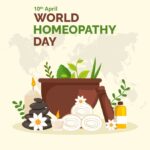🎭 7 Hilarious Truths Behind April Fools’ Day That Might Surprise You
📅 Celebrated on: April 1st
🎉 Also Known As: All Fools’ Day
🗺️ Celebrated In: Globally, with variations in different countries
🌟 Nature of Day: Light-hearted, humorous, prank-centric
🎉 Introduction: A Day of Laughter and Light-Hearted Deception
Laughter is a universal language—and April Fools’ Day is a global celebration of that laughter. Celebrated every year on April 1st, this day is marked by jokes, harmless hoaxes, pranks, and laughter, all shared in good spirit. From school kids hiding alarm clocks under beds to multinational companies releasing fake product launches—no one is really safe on April 1st!
- 📅 Celebrated on: April 1st
- 🎉 Also Known As: All Fools’ Day
- 🗺️ Celebrated In: Globally, with variations in different countries
- 🌟 Nature of Day: Light-hearted, humorous, prank-centric
- 🎉 Introduction: A Day of Laughter and Light-Hearted Deception
- 📚 History of April Fools’ Day
- 🏛️ 1. The Calendar Confusion Theory
- 🤡 2. Ancient Roman Festival – Hilaria
- 🐟 3. Poisson d’Avril (France)
- 📆 Timeline of April Fools’ Day
- 🤯 10 Fun Facts About April Fools’ Day
- 🤔 FAQs About April Fools’ Day
- ❓ Is April Fools’ Day a public holiday?
- ❓ Is there a universal theme?
- ❓ Is there a time limit for pranks?
- ❓ Can April Fools’ pranks be harmful?
- 🌍 Significance of April Fools’ Day
- 🤣 1. Laughter is Healing
- 👨👩👧👦 2. Strengthens Social Bonds
- 🧠 3. Encourages Creativity
- 🤹 4. Challenges Critical Thinking
- 🌐 How Is It Celebrated Around the World?
- 💬 Wishing Messages for April Fools’ Day
- 🧠 Important Points to Remember
- 🧬 Why April Fools’ Day Matters in Our Lives
- 🧩 Daily Life Impact
- 🧾 Conclusion: Laughter, Light, and Lessons
But have you ever wondered where this tradition came from? Why do we dedicate a whole day to fooling others and getting fooled? There’s more history and cultural meaning behind this funny day than most people realize.
📚 History of April Fools’ Day
The origin of April Fools’ Day is mysterious, with several competing theories:
🏛️ 1. The Calendar Confusion Theory
In 1582, France transitioned from the Julian calendar to the Gregorian calendar, as per Pope Gregory XIII’s edict. The new year, which previously began around the end of March, was moved to January 1. Those who still celebrated the old New Year in April were mocked and called “April Fools.”
🤡 2. Ancient Roman Festival – Hilaria
The Romans celebrated a day called Hilaria around March 25, where people would dress up in disguises, play games, and celebrate the arrival of spring with laughter and pranks.
🐟 3. Poisson d’Avril (France)
In France, people would tape paper fish on each other’s backs and shout “Poisson d’Avril!” (April Fish) to signify someone had been tricked. This tradition still exists and is a popular prank among children.
📆 Timeline of April Fools’ Day
| Year | Event |
|---|---|
| 1500s | First recorded mention of pranks in Europe tied to the changing calendar |
| 1582 | France adopts Gregorian calendar; old New Year celebrants become “fools” |
| 1700s | British newspapers start printing hoaxes and April 1st jokes |
| 1800s | Becomes widely celebrated across Europe and North America |
| 1957 | BBC airs a fake documentary about a spaghetti harvest—viewers believed it! |
| 2000s | April Fools’ goes digital—Google, YouTube, and more start launching hoaxes |
🤯 10 Fun Facts About April Fools’ Day
Google is famous for its April 1st pranks—once claiming to launch a “teleportation” feature.
Taco Bell once claimed it bought the Liberty Bell in 1996—it caused national confusion!
In Sweden, it’s traditional to trick someone into believing something strange and then say “April! April!”
Scotland celebrates it for two days, calling it Huntigowk Day on April 1 and Tailie Day on April 2.
In Iran, Sizdah Bedar, a similar holiday of pranks, dates back thousands of years.
The BBC’s 1957 prank on the “spaghetti trees” is considered the most successful prank ever.
Some companies announce fake mergers or product launches as part of April Fools’ jokes.
The online world (especially Reddit, YouTube, and Twitter) becomes prank central each year.
A 1980 BBC prank told people Big Ben would go digital—Londoners were furious!
There’s a fear of pranks called Gelotophobia—fear of being laughed at.
🤔 FAQs About April Fools’ Day
❓ Is April Fools’ Day a public holiday?
No, it’s not an official public holiday, but widely observed in schools, offices, media, and online.
❓ Is there a universal theme?
No universal theme, but the spirit of fun and harmless mischief is global.
❓ Is there a time limit for pranks?
In some cultures like the UK and Canada, pranks are only acceptable until noon. After that, the prankster becomes the “fool.”
❓ Can April Fools’ pranks be harmful?
They shouldn’t be. The core idea is light-hearted fun, not causing hurt or embarrassment.
🌍 Significance of April Fools’ Day
While it might seem like just a joke day, April Fools’ Day offers valuable lessons and societal benefits:
🤣 1. Laughter is Healing
Laughter is a natural stress-reliever. A good prank (harmless, of course!) can bring joy in stressful environments like workplaces or schools.
👨👩👧👦 2. Strengthens Social Bonds
Shared laughter strengthens relationships. It creates a moment of genuine connection—even if someone falls for a silly prank!
🧠 3. Encourages Creativity
People come up with unique, witty ideas. It fuels imagination, from fake newspaper articles to elaborate prank videos.
🤹 4. Challenges Critical Thinking
Pranks remind us not to believe everything we see or read—an important lesson in the age of fake news and misinformation.
🌐 How Is It Celebrated Around the World?
🇺🇸 United States
Fake news articles, YouTube pranks, and elaborate jokes in offices and schools.
🇫🇷 France
Poisson d’Avril: paper fish on people’s backs.
🇬🇧 United Kingdom
Office jokes and media hoaxes until midday only.
🇮🇳 India
Lighthearted jokes among friends; prank calls are common.
🌍 Digital World
Reddit, Google, and other platforms launch global pranks, some believable enough to go viral.
💬 Wishing Messages for April Fools’ Day
“Wishing you a day full of smiles, surprises, and harmless tricks—Happy April Fools’ Day!”
“May your pranks be clever and your reactions even funnier. Happy All Fools’ Day!”
“Don’t believe everything today—but believe in the power of laughter!”
“Sending you a smile this April 1st—just check your chair first!”
“Laughter is the best prank. Spread joy today, not fear. Happy April Fools’ Day!”
🧠 Important Points to Remember
Keep your pranks safe and respectful.
Never prank about sensitive topics like death, illness, or emergencies.
If someone says “enough”—respect their boundaries.
It’s okay to be fooled—it means you’re open and trusting.
Always reveal the prank—don’t leave people confused.
🧬 Why April Fools’ Day Matters in Our Lives
In today’s fast-paced, often stressful world, a little laughter can go a long way. April Fools’ Day gives us permission to laugh at ourselves and see the world a little less seriously. It reminds us that imperfection, silliness, and mistakes are a part of being human.
In relationships, humor builds bridges. At workplaces, it improves morale. Among children, it teaches imagination and boundary-testing. And for society, it’s a mirror that reminds us to think critically before blindly believing.
🧩 Daily Life Impact
Even one well-timed prank can:
Break tension in a strained relationship
Improve team bonding in a workplace
Bring laughter to someone having a bad day
Teach kids critical thinking and ethics
Offer a pause from stress and screens
🧾 Conclusion: Laughter, Light, and Lessons
While April Fools’ Day is about mischief and fun, it also reveals our social dynamics, creativity, and willingness to laugh at ourselves. In a world filled with constant seriousness, April 1st gives us a much-needed dose of joy.
Let’s use this day not to humiliate—but to elevate. To laugh, to bond, and to remind ourselves of the power of humor in healing and human connection.
So, go ahead—plan a prank, share a joke, but most importantly, share a smile.









Simply wanna comment on few general things, The website style and design is perfect, the content is rattling superb. “Crime does not pay … as well as politics.” by Alfred E. Newman.